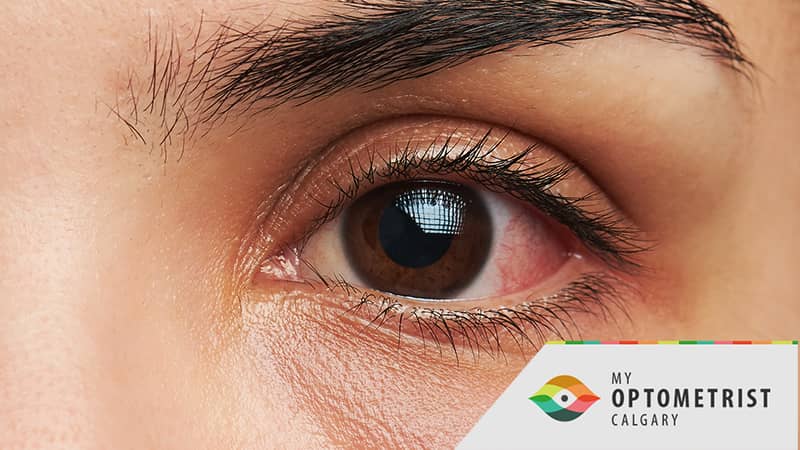
You may know conjunctivitis by its more common name: pink eye. Conjunctivitis is a condition that causes the conjunctiva, a thin tissue that lines the inside of the eyelids and the white part of the eye, to become inflamed. While many people think there is only one type of conjunctivitis, there are actually several. Acute conjunctivitis typically resolves within a few days, while chronic conjunctivitis lingers for prolonged periods of time and tends to recur, and either of these types of pink eye can be caused by a bacteria or virus, or by allergens or chemicals. Knowing that there is more than one type of conjunctivitis, what other popular myths about pink eye are commonly repeated?
Myth vs. Fact: Pink Eye
Myth: Only children get pink eye.
Fact: Anyone can get pink eye at any age. The reason pink eye is often seen in children is because young kids tend to pay less attention to hygiene and are more likely to get bacteria in their eyes. Pink eye can be highly contagious and is likely to spread when people are in close contact with a large group, such as children in schools and on playgrounds.
Myth: Anything that comes in contact with pink eye should get thrown away.
Fact: Anything that directly touches your eye and the area around it while infected with pink eye should get washed, but it does not have to be thrown out. Washing bedding (particularly pillowcases) often while infected will decrease the chances of reinfection or infection of the other eye. Other materials that come into contact with the eye should also be washed, such as shirt sleeves that may have been used to rub the eye, or makeup brushes. The actual makeup itself should be thrown away if it has come into contact with the infected eye, as the makeup cannot be washed and may be contaminated. Contact lenses that have been in contact with the infected eye should also be thrown away.
Myth: Pink eye can cause blindness.
Fact: Conjunctivitis is an irritating infection, but it does not lead to blindness. It may cause itching, burning, mild swelling of the eye and eyelid, increased tear production, discharge, crusting on the eyelid/eyelashes, and general discomfort, but it rarely causes any form of permanent damage, particularly when treated by an optometrist.
Myth: It’s good to rub your eye to reduce irritation when you have pink eye.
Fact: Rubbing your eye may feel good at the time but it can actually increase irritation and infection and can further spread your pink eye, as the bacteria from the infection is now on your hand and fingers.
Myth: Pink eye is always infectious.
Fact: While a common form of conjunctivitis is caused by bacterial infection, allergic or chemical forms of conjunctivitis are not infections. Since the infectious form of conjunctivitis is caused by a bacterial infection it can be treated using antibiotics, but the other forms of pink eye cannot.
Resolve Pink Eye At My Optometrist
If you or your child have pink eye, it is best to book an appointment with an optometrist. Although some forms of pink eye clear up in about 2 weeks, early diagnosis will inform further actions. If it is determined that the pink eye was caused by a chemical or an allergen, it can be prevented in the future, and if it is a bacterial infection, it can be treated with antibiotics. To receive pink eye treatment, book an appointment with our highly skilled staff by calling one of our locations, either at Sunridge, NE, Sundance, SE, or Three Hills, AB, or by filling out the online contact form.
FAQ
Q: Can an optometrist help with pink eye?
A: Yes. Your Calgary optometrist can test for, diagnose, and treat conjunctivitis. It is important to book an appointment as soon as you experience any pain in your eyes, are noticing a sensitivity to light, are experiencing blurred vision, and/or notice any redness in one or both eyes.
Q: How long is pink eye contagious?
A: Pink eye is generally contagious either for as long as symptoms last or until 24 hours after starting antibiotics. Some forms of pink eye are infectious and it spreads at about the same rate as the common cold, so try not to touch the eye and make sure to wash your hands often in case you did touch near the eyes by accident.
Q: Does pink eye often get worse before it gets better?
A: Yes, bacterial conjunctivitis will often get worse on the second or third day and then symptoms will lessen after that. If your condition gets worse after a week, visit My Optometrist to rule out other types of infections.